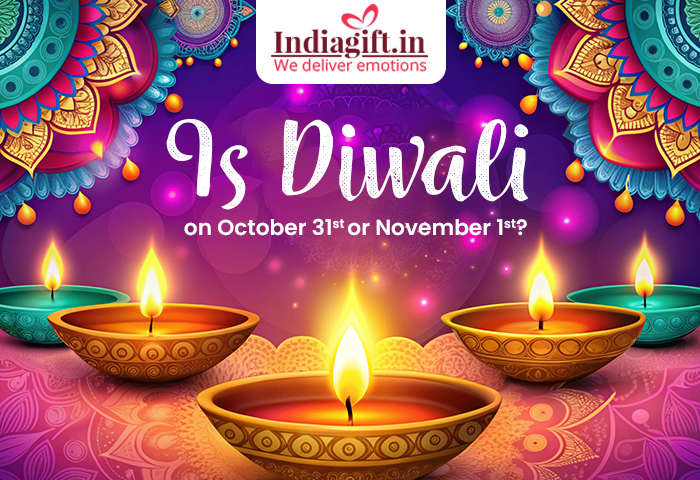Diwali, also known as Deepavali, is one of the most awaited festivals in India, celebrated with great enthusiasm by Hindus around the world. It’s a time for lights, festivities, and the victory of good over evil. However, in 2024, the dates surrounding Diwali have sparked some confusion, especially about whether the main day of celebration falls on October 31st or November 1st.
Understanding Diwali’s Date: The Lunar Calendar
Diwali is based on the Hindu lunar calendar, which means that its date changes every year according to the phases of the moon. Diwali is observed on the new moon day, or Amavasya, in the Hindu month of Kartik. This new moon typically occurs between late October and early November on the Gregorian calendar.
In 2024, Amavasya, the new moon day, occurs on Thursday, October 31st. This leads some to conclude that Diwali should be celebrated on that day. However, others argue for celebrating Diwali on Friday, November 1st, based on regional and religious interpretations of the tithi (lunar phase) timing.
The Source of Confusion: Tithi Timing
The key source of confusion comes from the tithi timing—when Amavasya begins and ends. In Hindu tradition, rituals and festivals are sometimes celebrated based on the precise time that a tithi begins or ends. While Amavasya technically begins late on October 31st, in some regions, the bulk of the tithi, particularly the night, falls on November 1st.
Here’s a breakdown of the timing:
- October 31st: Amavasya begins late in the evening, but for many, this night is already considered auspicious for the Diwali Lakshmi Puja.
- November 1st: For others, since the majority of the night is still under Amavasya, they prefer to observe the festival on this day, especially for lighting lamps and bursting crackers.
Regional Variations in Diwali Celebration
India is a vast country, and Diwali traditions can differ from state to state. In Northern India, the evening of October 31st might see many families performing the Lakshmi Puja. However, in some Southern and Western regions, people may lean towards celebrating on November 1st, as they interpret the tithi’s overlap differently.
Religious and cultural practices also play a role. Some follow the Smartha tradition, which prioritizes the day the tithi begins, leading to an October 31st celebration. Others may follow the Vaishnava tradition, where the emphasis is placed on the ending of the tithi, prompting a November 1st celebration.
Official Holiday and Celebrations
Given the complexity, government and public holiday announcements may vary based on local customs. In many places, both October 31st and November 1st may be considered Diwali days, with the main public holiday often set for November 1st.
Schools, businesses, and offices might remain closed on either of these days, depending on the state or region. Therefore, individuals need to check local holiday calendars to confirm the official date of celebration in their area.
So, When Should You Celebrate?
Whether you celebrate Diwali on October 31st or November 1st depends on your personal beliefs, family traditions, and local customs. Both days carry spiritual significance, as they represent the triumph of light over darkness and the invocation of blessings from Goddess Lakshmi.
In essence, there is no “right” or “wrong” day to celebrate Diwali in 2024 what matters most is the spirit of the festival and the joy of celebrating with loved ones.
Diwali gifts are thoughtful presents exchanged during the festival of lights, symbolizing love, prosperity, and good fortune. Popular Diwali gift options include sweets, dry fruits, decorative items, jewelry, and personalized hampers. These gifts enhance the festive spirit, bringing joy and strengthening bonds with family, friends, and loved ones.
Conclusion
The Diwali date confusion between October 31st and November 1st in 2024 stems from the nuances of the lunar calendar and tithi calculations. Regardless of which day you choose, Diwali remains a time for family, festivities, and a reminder of the enduring power of good over evil. So, light your lamps, share in the joy, and embrace the Diwali spirit on whichever day feels right for you!

